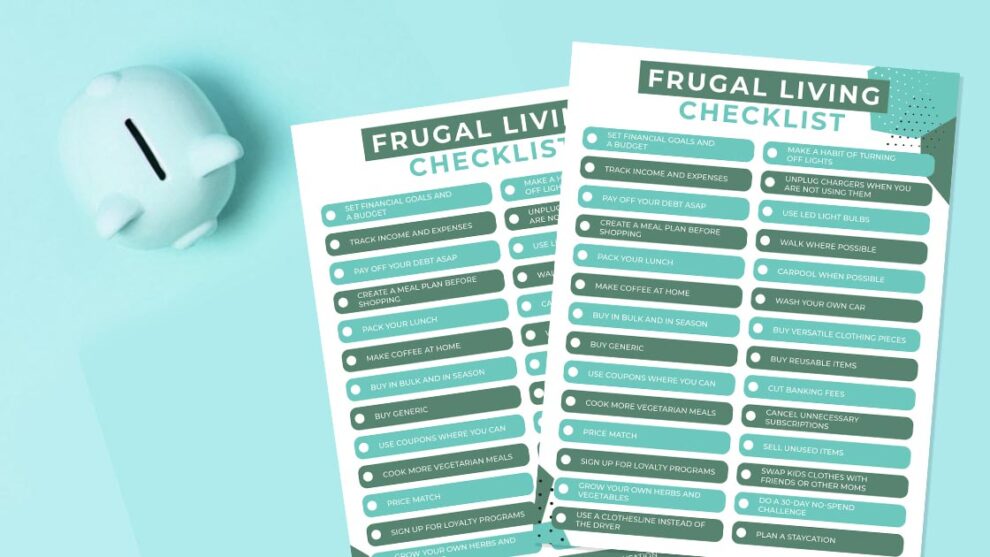Introduction
Living well on a budget is about finding joy, fulfilment, and financial freedom while embracing frugal living principles. This blog post will explore practical strategies, tips, and insights to help you thrive and create a fulfilling life while effectively managing your finances. Whether you want to save money, pay off debt, or adopt a more mindful approach to spending, this guide will empower you to live well on a budget. Let’s dive in!
Embracing Frugal Living
- Understanding Frugal Living: Frugal living is a lifestyle that focuses on mindful spending, prioritizing value over excessive consumption. It’s about making intentional choices, eliminating wasteful expenses, and finding creative ways to maximize resources. By embracing frugality, you can live a fulfilling life while staying within your financial means.
Frugal living is not about deprivation or sacrificing enjoyment; it’s about spending intentionally. By adopting frugal habits, you can allocate your resources wisely, invest in what truly matters to you, and build a solid financial foundation.
Changing Your Mindset
- To live well on a budget, shifting your mindset about money and consumption is essential. Embrace gratitude for what you have and find contentment in life’s simple pleasures. Understand that a fulfilling life doesn’t revolve around material possessions but experiences, relationships, personal growth, and overall well-being.
- One way to escape the consumerist culture’s push for excessive spending is to change your mindset. Instead of seeking temporary pleasure through impulsive purchases, concentrate on activities that align with your values and bring you genuine happiness.
Budgeting for a Balanced Life
- If you’re looking to take control of your finances and live comfortably on a budget, creating a budget is a powerful tool to help you do just that. To get started, begin tracking your income and expenses, so you have a clear understanding of your financial situation. Categorize your expenses into essential needs, discretionary spending, and savings. Allocating a portion of your income towards savings and debt repayment is crucial to achieving financial stability.
- A budget provides you with a roadmap for your financial journey. It helps you decide where your money should go and ensures that your spending aligns with your priorities. Regularly review and adjust your budget as circumstances change to stay on track.
- Mindful Spending: Practicing mindful spending is crucial to living well on a budget. It involves being intentional and conscious about how you allocate your resources. Before purchasing, ask yourself if it aligns with your values and priorities. Consider whether it will contribute to your overall well-being and bring lasting satisfaction.
To cultivate mindful spending habits, practice the 24-hour rule: wait 24 hours before making a non-essential purchase. This allows you to evaluate your decision clearly and determine if it’s a wise use of your money. Additionally, create a list before shopping and stick to it to avoid impulse purchases.
Thrifty Living Tips
- Here are some innovative strategies to save money while grocery shopping. Firstly, compare prices, use coupons, and take advantage of sales for essential items. Secondly, plan your meals ahead of time and create a grocery list to avoid unnecessary purchases. Lastly, avoid shopping when hungry to prevent impulse buys. Additionally, considering buying in bulk for frequently used items can provide cost savings in the long run.
- Frugal Home Management: Reduce your utility bills by practising energy-saving habits such as turning off lights when not in use, using energy-efficient appliances, and adjusting the thermostat conservatively. Embrace DIY projects for home repairs, maintenance, and decor. This saves money and fosters a sense of accomplishment and creativity.
- Mindful Entertainment: Living well on a budget doesn’t mean sacrificing fun and entertainment. Look for free or low-cost activities in your community, such as public parks, local festivals, or community events. Host potluck gatherings or organize game nights with friends and family instead of expensive outings. Explore your local library for books, movies, and other resources.
Prioritizing Health and Well-being
- Affordable Fitness: Exercise is essential for physical and mental well-being. Find affordable fitness options for walking, jogging, or cycling in your neighbourhood or local parks. Explore free workout videos or apps that offer a variety of exercises you can do at home. Consider joining community centres or fitness studios that offer discounted or introductory packages.
- Eating nutritious meals without overspending is possible. You can plan ahead to avoid wasting food and keep your grocery bills in check. Use budget-friendly ingredients like seasonal produce or pantry staples. Also, try batch cooking and meal prepping to save time and money during the week.
Building a Thrifty Wardrobe
- Thrift Shopping and Clothing Swaps: Thrift stores, consignment shops, and online marketplaces offer a treasure trove of affordable, gently used clothing. Explore these options to find unique pieces at a fraction of the cost. Organize clothing swaps with friends or family members to refresh your wardrobe without spending money. This not only saves you money but also promotes sustainability.
- Capsule Wardrobe and Versatile Pieces: Creating a capsule wardrobe is an intelligent approach to building a functional and cost-effective wardrobe. Consider investing in versatile pieces that can be easily mixed and matched to create various outfits. Opt for quality over quantity to ensure durability and longevity. Creating a capsule wardrobe can help you reduce clutter, save money, and simplify your daily outfit choices.
Thriving Socially and Emotionally
- Cultivating Relationships: Building strong and meaningful relationships doesn’t have to be expensive. Instead of costly outings, opt for meaningful experiences like hiking, picnics, or volunteering together. Plan gatherings at your place where everyone can contribute and spend quality time with friends and loved ones without spending too much money.Plan gatherings at your place where everyone can contribute and spend quality time with friends and loved ones without spending too much money.
- Personal Growth and Learning: Invest in your personal growth and development using free or low-cost resources. Libraries offer a wealth of books, educational materials, and even free classes or workshops. Online platforms provide access to podcasts, blogs, and educational videos. Embrace hobbies and creative pursuits that bring you joy and fulfilment without requiring substantial financial investments.
Living well on a budget is about finding fulfilment, joy, and financial freedom by embracing frugal living principles. By adopting mindful spending habits, creating a budget, and prioritizing your well-being, you can thrive and create a fulfilling life within your means. Implement the tips, strategies, and insights shared in this guide to embark on a journey of living well on a budget.









Add Comment